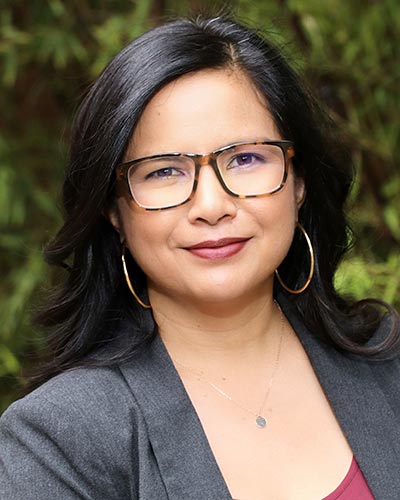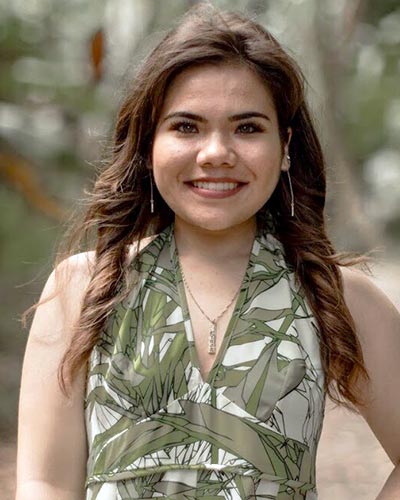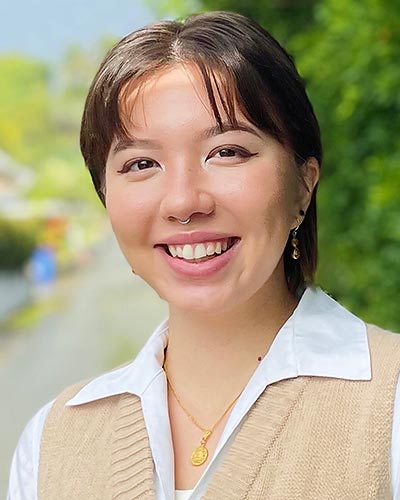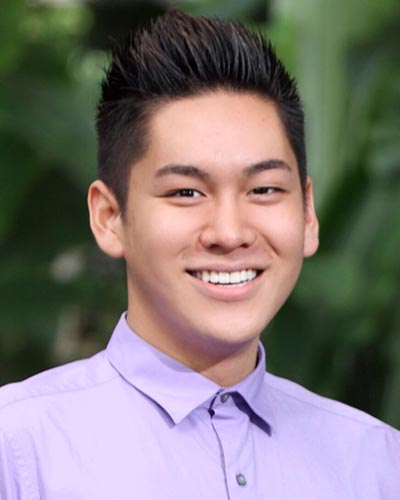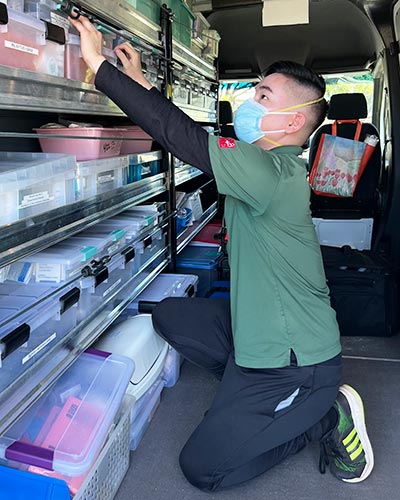What can you major in at UH Mānoa if you want to physically heal people? Medicine, nursing, public health, to name a few. But what can you also double-major in to better understand – and help dispel – prejudices experienced by women, LGBTQ+ and marginalized groups in society?
Increasingly, the answer is Women, Gender and Sexuality Studies (WGSS), a College of Social Sciences (CSS) department formerly known as Women’s Studies. WGSS offers an interdisciplinary approach to studying women and gender issues, featuring a BA major with a fully online option, undergraduate and queer studies certificates, and a graduate certificate.
“We all deserve full health potential, but disparities exist among specific population groups in the attainment of that,” said Lani Teves, WGSS chair and associate professor. “This is why students have many opportunities across our curriculum to think critically and creatively about solutions to health inequities, and to see themselves as key actors in making health care more accessible and equitable across many communities.”
Meet two WGSS students and an alumnus seeking a graduate degree, who explain why seeking a double-major in WGSS made sense to them as they pursue careers in health care.
Cassidy Silva: Class standing: Junior; Graduation target: Spring 2023; Professional goal: Physician
Mililani High graduate Cassidy Silva came to the UH Mānoa campus in 2019 as a UH Regent Scholar, one of 20 outstanding freshmen who annually receive a full tuition waiver over four years of undergraduate study. With the intent of applying to medical school after earning her bachelor’s degree in cell biology, Silva also plunged headlong into WGSS and found the subject matter fascinating. “There’s a synergy that exists between all that I learn in the classroom, my past experiences, and my personal and professional goals,” said Silva. “Like that of no other field of study, WGSS topics touch so many strands of my identity.”
For example, as a research intern at Kapiʻolani Medical Center in fall 2021, Silva helped recruit participants for a study on the diet and eating practices of Native Hawaiian mothers and their babies. Making recruitment calls, researching materials for study participants and keeping records of babies’ anthropometric (size and proportion) data were embraced as responsibilities. Silva also ran the social media account of the Hawaiʻi-based organization SafeSex808, which focuses on expanding teen knowledge of safe and consensual sex. “For the past six months, I’ve been conducting research on sexual health topics, figuring out how to share that knowledge with adolescents and teens, and using graphic design software to present weekly Instagram posts,” said Silva.
She also used her WGSS education while interning at the UH John A. Burns School of Medicine’s (JABSOM) Department of Obstetrics, Gynecology and Women’s Health, which fits into her dream of becoming a doctor specializing in reproductive endocrinology and infertility.
“A core theme in all WGSS courses that I’ve taken has been intersectionality theory or the study of oppression and discrimination of various social identities. It’s through this lens that I’ve recognized the intimate overlap of many issues barring accessibility to quality health care and health information,” said Silva. “Anything that makes you excited to learn and broaden your perspective is worth pursuing.”
Cameron Woods: Class standing: Senior; Graduation target: Spring 2022; Professional goal: Nurse practitioner
Kalani High graduate Cameron Woods enrolled at UH Mānoa in 2018 and was eager to take all the public health classes that were offered. Yet, as a sophomore, Woods felt something was missing. “It became clear that my public health education would not be complete without studying and understanding the historical, social and structural issues that have created and perpetuated health disparities,” said the UH Regent Scholar.
That’s when WGSS became Woods’ second major. After all, CSS classes in Anthropology, Sociology and Ethnic Studies could be counted toward a WGSS focus. “I also specifically went into this major wanting to learn more about why women, LGBTQ+ and people of color face discrimination and disparities in health care,” said the 21-year-old.
Woods found fulfilling part-time work at a local health center, where two main aspects of the job were making organizational changes to ensure LGBTQ+ patients and employees feel safe and comfortable in the clinic, and meeting with patients seeking guidance on gender-affirming health care.
On graduating in May, Woods will move into the work force with a bachelor’s degree. “Our insurance system makes it very difficult for people to receive gender-affirming care, and it can be quite challenging and even traumatizing to navigate the health system on their own. I tried to take as much of that burden off the patient,” they said. “My advice to students, if you want to challenge yourself to deconstruct and reframe your ideas about society, and have a career working to create a more equitable society, WGSS is a great major to consider.”
Austin Ajimura: Bachelor’s in biology and WGSS, 2019; Pursuing Master’s in Public Health in Social and Behavioral Health Sciences; Professional goal: Public health professional
From early childhood to serving as Mililani High’s student body president, Austin Ajimura has wanted a career in medicine. “I was always dead set on the study of biological and clinical aspects of science and health-care delivery in college,” said Ajimura, 24. “But what I failed to consider were the forces that affect my patients’ lives external to medicine. When someone leaves the clinic, no matter how much you try to help them, they will continue to face their challenges.”
Ajimura is still haunted by the memory of a client while volunteering at JABSOM’s HOME (Houseless Outreach & Medical Education) Project. “The client was in the final stages of cancer, a chronically houseless veteran and not receiving needed medical care or social support,” Ajimura recalls. “We were able to assist to the best of our abilities but I never saw this individual again. I think about that person a lot. The experience further fueled my passion for change, because it was the first time I really saw the direct and devastating impacts of health disparities and poor access to health care.”
Ajimura’s main duties at Hawai‘i HOME are assisting patients to obtain health insurance, establish primary care, and identify/overcome insurance and treatment problems. He also works with city first-responders who have contracted or been exposed to COVID-19 by doing data collection and case investigation, determining appropriate quarantine/isolation timelines, and providing follow-up.
You couldn’t find a bigger believer in the power of a WGSS degree than Ajimura, who videotaped a testimonial on the department’s website. That’s because he is grateful to have double-majored in biology and WGSS. “I am a better person today because of WGSS. It has transformed me in the way that I view the world and society,” he said. “I am incredibly grateful to learn and grow through this department.”
